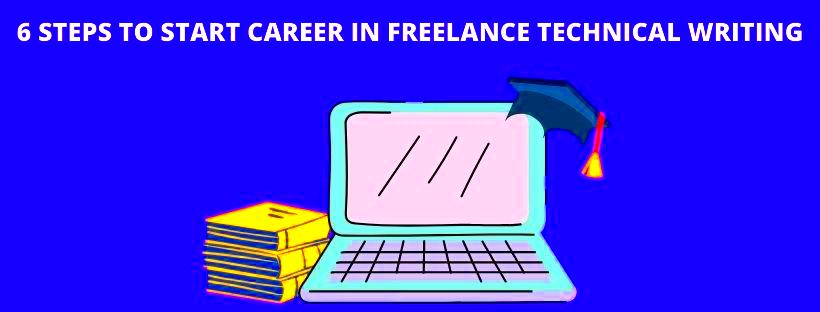Technical writing is a specific form of writing that focuses on conveying complex information in a clear and concise way. It is often used in fields like technology, engineering, and science. The goal is to help readers understand technical concepts, processes, and products.
Here are some key points about technical writing:
- Purpose: The main purpose is to inform and educate the audience.
- Clarity: Good technical writing avoids jargon and uses simple language.
- Structure: Documents should be well-organized with headings, lists, and visuals.
- Examples: Common forms include user manuals, guides, reports, and online help documentation.
Understanding the essence of technical writing is crucial for anyone looking to start a career in this field. It sets the foundation for all the skills and techniques you will develop as you progress.
Identify Your Target Audience

Knowing your audience is essential for effective technical writing. Different audiences require different writing styles and levels of detail. For instance, writing for experts in the field will differ from writing for beginners or laypersons.
Here’s how to identify your target audience:
- Research: Find out who will read your documents. Are they industry professionals, end-users, or students?
- Assess Needs: Understand what information your audience needs and what their background knowledge is.
- Adjust Tone: Use a formal tone for professionals and a more conversational tone for general readers.
By tailoring your writing to meet the specific needs of your audience, you can make your content more effective and engaging.
Also Read This: How to Tell If a Fiverr Profile is Fake
Build Your Writing Skills

To succeed as a freelance technical writer, you need strong writing skills. This involves not just knowing how to write, but also understanding how to convey complex information simply and effectively.
Here are some tips to build your writing skills:
- Practice Regularly: Set aside time each day or week to write. This could include blogs, articles, or practice manuals.
- Read Widely: Read technical documents in your field. Notice how they structure information and explain concepts.
- Seek Feedback: Share your work with peers or mentors to get constructive criticism.
- Take Courses: Consider enrolling in writing courses or workshops that focus on technical writing.
Building your skills is an ongoing process. The more you practice, the better your writing will become.
Also Read This: How to Find Orders on Fiverr
Create a Portfolio to Showcase Your Work

A portfolio is your calling card as a freelance technical writer. It showcases your skills, style, and experience to potential clients. Having a well-organized and professional portfolio can make a significant difference in landing jobs.
Here are some steps to create an impressive portfolio:
- Choose Your Best Work: Select samples that highlight your best writing. Include a variety of documents such as manuals, reports, and guides to demonstrate versatility.
- Include Context: For each piece, provide a brief description explaining the project, your role, and the audience. This helps clients understand your experience.
- Use Visuals: If applicable, include images or screenshots of your work to make the portfolio more engaging.
- Keep It Updated: Regularly add new projects and remove older ones that no longer reflect your skills.
- Create an Online Portfolio: Consider building a website or using platforms like LinkedIn or Behance to showcase your work digitally.
Remember, your portfolio is a reflection of you. Make it professional and accessible to attract potential clients.
Also Read This: Starting Freelancing in Digital Marketing
Set Your Rates and Pricing Structure
Determining your rates as a freelance technical writer can be challenging. It's essential to set prices that reflect your skills while remaining competitive in the market. Here are some tips to help you establish your pricing structure:
Consider the following factors:
- Experience Level: If you are just starting, you might set lower rates to attract clients. As you gain experience, you can gradually increase your prices.
- Project Complexity: More complex projects often require higher rates. Consider how much research or technical knowledge is needed.
- Market Rates: Research what other freelance technical writers charge in your area or field. This can help you find a competitive price range.
- Payment Structure: Decide if you want to charge per hour, per word, or per project. Each method has its advantages, so choose what works best for you.
Setting your rates may take time, but being clear about your pricing will help you establish trust with your clients.
Also Read This: How to Start Working as a Freelance Podcast Producer
Market Yourself as a Freelance Writer
Marketing yourself is a crucial part of becoming a successful freelance technical writer. You need to put yourself out there and connect with potential clients. Here are some effective strategies to market yourself:
- Build a Professional Website: A well-designed website can serve as a portfolio and a place to share your services. Include testimonials and a blog to showcase your expertise.
- Utilize Social Media: Platforms like LinkedIn, Twitter, and Facebook can help you network with professionals and share your work. Join relevant groups and engage with potential clients.
- Attend Industry Events: Participating in workshops, conferences, or webinars can help you meet industry leaders and peers. Networking is a great way to find job opportunities.
- Offer Free Resources: Create guides or articles that provide value to your target audience. This can help establish you as an authority in technical writing.
- Use Freelance Platforms: Websites like Fiverr, Upwork, and Freelancer are great for finding freelance jobs. Make sure your profile is complete and showcases your skills.
By actively marketing yourself, you can attract clients and build a successful freelance writing career.
Also Read This: How to Extend Order Time on Fiverr
Find Freelance Technical Writing Jobs
Finding freelance technical writing jobs can seem daunting, but with the right strategies, you can land great opportunities. There are various avenues to explore when searching for work in this field. It’s all about knowing where to look and how to market yourself effectively.
Here are some effective ways to find freelance technical writing jobs:
- Online Job Boards: Websites like Indeed, Glassdoor, and SimplyHired often list freelance technical writing positions. Use keywords related to technical writing in your searches.
- Freelance Platforms: Sites such as Upwork, Fiverr, and Freelancer allow you to create a profile and bid on projects. These platforms can be a great way to build your portfolio.
- Networking: Reach out to your professional network, including former colleagues and industry connections. Let them know you are looking for freelance opportunities.
- Professional Organizations: Join organizations related to technical writing, such as the Society for Technical Communication (STC). These groups often have job boards and networking events.
- Cold Pitching: Identify companies that may need your services and send them a well-crafted email offering your expertise. This proactive approach can lead to freelance gigs.
By diversifying your job search strategies, you increase your chances of finding rewarding freelance technical writing positions.
Also Read This: How to Write a Buyer Request in Fiverr
Continuously Improve Your Skills
In the fast-paced world of technical writing, continuous improvement is key to staying relevant and effective. As industries evolve, so do the tools and techniques used in writing. Committing to ongoing learning can enhance your writing and increase your marketability.
Here are some effective ways to keep improving your skills:
- Take Online Courses: Platforms like Coursera, Udemy, and LinkedIn Learning offer courses on technical writing, documentation tools, and more.
- Read Books and Articles: Stay updated with the latest trends in technical writing by reading industry-related books, blogs, and articles.
- Practice Regularly: Write frequently, whether it’s for personal projects or practice assignments. The more you write, the better you will become.
- Seek Feedback: Share your work with peers or mentors to get constructive criticism. Learning from feedback can help you identify areas for improvement.
- Stay Updated with Tools: Familiarize yourself with the latest writing and editing tools like Markdown, MadCap Flare, or Adobe RoboHelp to enhance your productivity.
By dedicating time to improve your skills, you’ll remain competitive and be able to produce high-quality technical documents.
Also Read This: How to Start a New Paragraph in Fiverr
Frequently Asked Questions
As you start your journey as a freelance technical writer, you may have questions. Here are some common ones and their answers:
- What qualifications do I need to become a technical writer? While formal qualifications can help, strong writing skills and knowledge in a specific field can be more important. Many successful technical writers have diverse backgrounds.
- How do I handle difficult subjects in my writing? Break complex topics into smaller, manageable parts. Use clear explanations and visuals to help clarify points for the reader.
- What should I include in my portfolio? Include a variety of writing samples that showcase your skills. Provide context for each piece, such as the audience and purpose.
- How can I find clients? Utilize job boards, freelance platforms, and networking. Cold pitching to companies can also lead to opportunities.
- Is it necessary to specialize in a specific industry? While specialization can help you stand out, being versatile is also valuable. Consider your interests and the demand in various fields.
Addressing these questions can help ease your transition into freelance technical writing and set you up for success.
Conclusion
Starting a career as a freelance technical writer can be a rewarding journey. By understanding the basics of technical writing, identifying your target audience, building your skills, and effectively marketing yourself, you set a strong foundation for success. Remember, creating a solid portfolio and finding freelance jobs are essential steps in this process. Continuous improvement will keep your skills sharp and relevant in an ever-evolving field. Whether you are just beginning or looking to expand your current work, embracing these strategies will help you thrive as a freelance technical writer.




